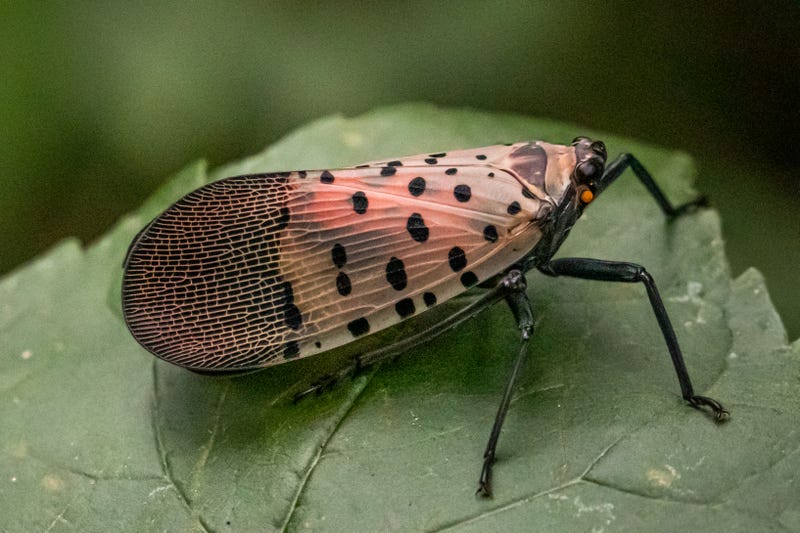
PHILADELPHIA (KYW Newsradio) — Pennsylvania will start spraying to try to limit the spread of the spotted lanternfly, using a targeted approach.
34 counties in Pennsylvania have been quarantined to try to control its spread, including all of metropolitan Philadelphia and Southeastern Pennsylvania.
Shannon Powers with the Pennsylvania Department of Agriculture said their latest tool is spraying insecticides.
“This new element of the control strategy is based on how the insects travel," said Powers.
She explained that is primarily done by hitching a ride on cars, trucks, or trains.
Despite the quarantine, she says you can look on a map and see how the lanternflies have radiated out from Berks County, where they were first found seven years ago.
“They may be in one location in a county and then skip two counties," she said. "That was easier to see last year than it is this year.”
Pennsylvania has spent more than $34 million researching a way to slow the spread, including different sprays to see what is most effective while causing the least harm.
“Early on we didn’t really know what kind of sprays could be used safely without harming people or other plants or insects," she said.
She said the spraying will focus on travel cooridors like highways and rail lines. She explained, if you look at a map of the lanternfly’s spread, you can see how they hitchhike rides:
“It just takes that one pregnant female hopping’ on your car when you leave the area. If it’s pregnant, it will hop off on the other end and start a new population," she said. "They breed very, very rapidly.”
Lanternflies will lay eggs on anything, including train cars or truck trailers, and one female can lay up to 50 eggs.
The Penn State extension has been a leader in researching lanternflies. Their website has information for homeowners on how to deal with lanternflies in the backyard. High on that list of advice is “avoid overreacting.”
Powers said they will not spray on private property, and they won’t spray unless weather conditions are right. That means no wind to blow it where it’s not supposed to go, and no rain to wash it away.
She said anyone on the hypersensitivity registry will be notified prior to spraying, and they won’t spray flowers to protect pollinators.


